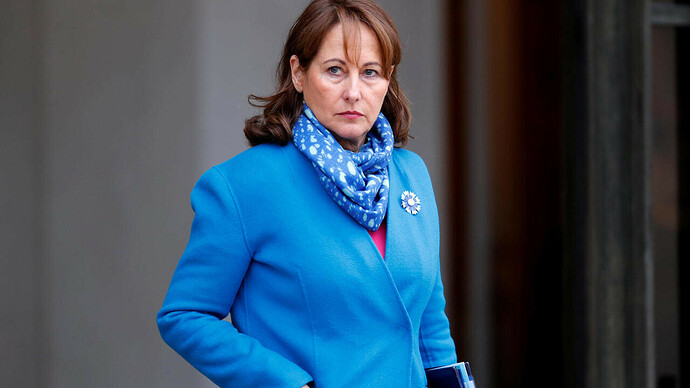Nah, Royal is definitely grillée as the French say, she’s toast, she’s history.
She didn’t even make it to the socialist primaries of January 2017, laughably called “La primaire de la Belle Alliance Populaire”. She knew full well she had zero chance of winning those primaries (in which the socialist candidate for the Presidentials is picked. And the winner of the poisoned chalice was… Benoît Hamon. The poor bougre had no chance, he was doomed from the word go, as he carried two millstones not of his own making: the toxic legacy of François Hollande who finished his tenure on popularity ratings of 4% (!) and the impossibility of making himself heard in the ginormous din generated by the serialised Fillon scandal & many offshoots which broke out the very day – end of January 2017 – that Hamon was elected as the Socialist candidate. He subsequently recorded the second worst ever score registered by a Socialist in a Presidential, 6.4%).
Since then, Royal has been busy losing all credibility. She repackaged herself as an environmentalist and in 2014, François Hollande appointed her as Minister of Ecology, Sustainable Development and Energy. She’d been badgering him for a sinecure and he gave her one, possibly to atone for his sins (in June 2007 after a 37-year relationship with Royal and 4 children together, Hollande and her split as the latter cheated on her during Royal’s presidential campaign of 2006-07 with the much younger Paris Match journalist Valérie Trierweiler - who would herself be infamously cheated on by Hollande 6 years later, with the much younger actress Julie Gayet -, Trierweiler later wrote a scathing bestselling tell-all book about Hollande).
As minister of Ecology, Royal was instrumental in putting together the Paris COP21 in 2015 but by all accounts, she was more style than substance in that position.
In December/January 2016, so a month before the Socialist primaries “de la Belle Alliance Populaire”, as Macron was gaining traction, she moved towards him (Macron, as the Economy minister in Hollande’s second gvt headed by Manuel Valls, was of course a former colleague of hers), especially as she sensed that there was nothing to gain personally in endorsing a Socialist candidate who was never going to win no matter what, and she reasoned that there was mileage in backing the Macron horse (who, apart from a Socialist, was the only candidate she could possibly endorse).
When Macron was elected, she pestered him for a ministry portfolio (ideally the Ecology one) but didn’t get one and had to make do with being appointed “Ambassador of the North and South Poles”, an environment pantouflerie all right but one plum job that she couldn’t even be arsed to at least pretend doing half properly. For instance, it turned out that she rarely if ever turned up to any meeting (and didn’t even bother sending her deputy) and did some dodgy things. She denied it but investigative journalists proved that she had indeed done sod all for three years and worse, had used that privileged position for self-promotion and what have you (like, leaving bills of €1,500 a month in taxis taken for non-professional reasons). She more or less had to resign (as forced by Macron) as she’d been badly exposed as a bent fraud and as Macron hadn’t supported her (and rightly so) she turned against him.

Royal freeze out: France’s Poles ambassador ‘fired’ for Macron criticism
French former presidential candidate and ex-environment minister Ségolène Royal has claimed she is to be fired as ambassador to the North and South Poles for criticising President Emmanuel Macron's policies.

Macron Fires Ambassador Who Attacked His Pension Plan (Published 2020)
Ségolène Royal, the defeated Socialist candidate in France’s 2007 election, was President Emmanuel Macron’s emissary to the North and South Poles and a public critic of his pensions overhaul.
She’s now gobbing off against Macron in the media and all the rest of it while saying she is “ready to head a Union of the Left list for the 2022 Presidentials” but , even if she does run for presidency (after all, she can, as an independent, all she has to do is to find 500 signatures/endorsements, shouldn’t be difficult for her), she has zero chance, it would be more to piss off Macron seeing that, as a centre-Left candidate, she would probably manage to siphon off enough votes towards her to somewhat hurt him as first rounds are generally very tight affairs (4 candidates last time around the 20% mark - Macron at 24%, Le Pen at 21.3%, Fillon at 20% and Mélenchon at 19.6%).